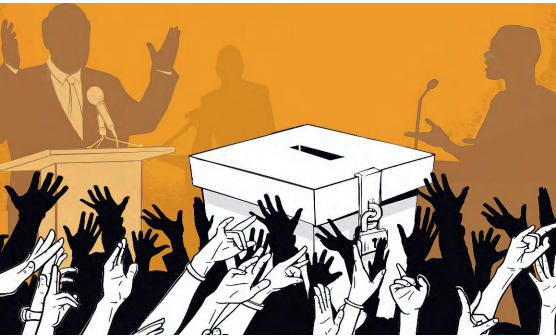

In virtually every election cycle, you will find a well-known businessman emerge to declare that the time has come for him to take the plunge into politics.
Purely in order to be of service to ‘his people’, of course.
And in response to the many pleas he has received from the voters to present himself as a candidate so that they may have the pleasure of casting their votes for him.
The track record of such entrepreneurs when they venture into politics is not very impressive.
Most of them end up losing, even after spending phenomenal sums of money on the campaign.
And even among those who win, they will rarely serve for more than one term.
So why is it that success in business rarely translates into success in politics?
The explanation I have heard which makes most sense to me, is that these two fields of human endeavour do not respond to the same logic.
Each is quite different and needs to be understood on its own terms.
What makes business sense, will usually not make political sense.
And the calculus that applies in the making of business decisions, has little relevance when it comes to political choices.
Any business, for example, offers goods or services for sale to their potential customers.
And if a customer does not like a specific product offered at the local supermarket, they can just ignore this product and seek an alternative further down the aisle.
Basically, your potential customer judges your service or product on its merits, and in most cases will not really care who the service provider or manufacturer is.
Politics is a little more complicated than that.
If an MP presides over a fundraiser to complete the roofing of a church, for example, there will be a dozen other incomplete churches in his constituency whose worshippers will immediately demand that he do the same for them.
And they may not ask this nicely.
They very likely will demand it as something they are entitled to, given that they voted for him.
Consider, hypothetically, if you were a tycoon, currently serving in parliament, who has long been accustomed to having your staff obeying your orders.
You are not likely to find the presumption and sense of entitlement of your voters easy to accept.
You will begin to develop a contempt for the unreasonable expectations of your constituents.
And given such an attitude, it will only be a matter of time before they vote you out.
Well, given that for every good thing you deliver in one place, there will be a dozen other similar places whose residents will feel deeply aggrieved at having been “neglected”, the question arises: Is there really a way around this?
Given that the voting public will always insist that what they truly seek from their leaders is “development”, is there a way for politicians to seriously focus on just such development projects, in a direct and clear manner without being distracted by inter-clan politics and other purely local rivalries?
I believe it is possible, but only through the proper utilisation of something most Kenyan politicians seem to give little attention to: political branding.
For I have known of politicians who had great reputations for being “development conscious” – despite not having all that much to show by way of such development projects for their constituents.
Their political success was purely a result of effective political branding.
Incidentally, this is a universal problem, not just a Kenyan one.
Leaders in some of Europe’s most advanced nations are currently trying to resolve the problem posed by the fact that their countries need lots of “guest workers” if their economies are to continue growing.
But at the same time, many ordinary people in their countries – people who are not necessarily racists – are convinced that “immigrants” are the root cause of all their economic and political problems.
Thus, to be branded as “pro-immigration” is currently a political death sentence for European politicians.
And you really cannot ask for a better
example of a situation in which all the economic logic
points in one direction; and the political logic points in
the opposite direction.








![[PHOTOS] Betty Bayo laid to rest in Kiambu](/_next/image?url=https%3A%2F%2Fcdn.radioafrica.digital%2Fimage%2F2025%2F11%2F3b166e2e-d964-4503-8096-6b954dee1bd0.jpg&w=3840&q=100)








